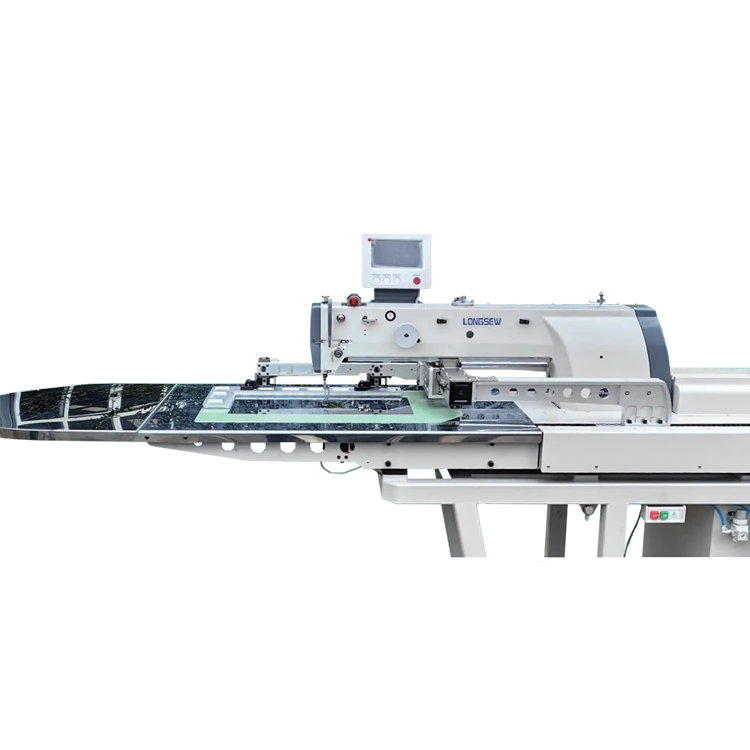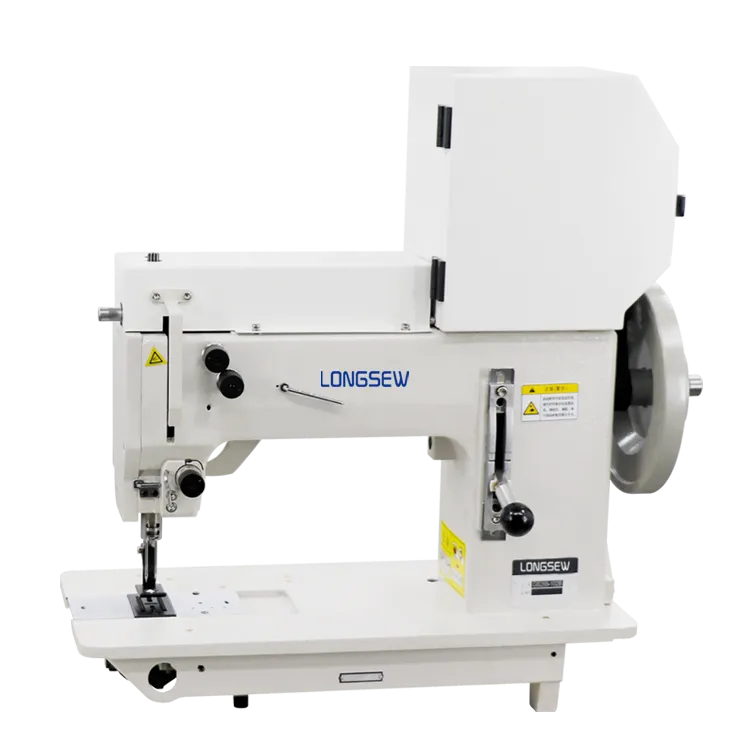Professional Leather Sewing Machines Heavy-Duty Stitching Solutions
- Overview of Leather Sewing Machine Technology
- Technical Advantages of Industrial Leather Sewing Machines
- Comparison of Leading Leather Sewing Machine Manufacturers
- Custom Solutions for Heavy-Duty Leather Stitching
- Real-World Applications in Leather Product Manufacturing
- Addressing Common Leather Sewing Challenges
- Future Trends in Leather Sewing Machinery

(leather sewing machine company)
Unlocking Precision in Leather Crafting with Advanced Machinery
The global leather goods market, valued at $424 billion in 2023, demands specialized equipment for consistent quality. Modern leather sewing machine companies have revolutionized production through innovations that address material thickness (0.5-5mm), stitch density (4-12 SPI), and thread tension control (±0.2N precision). Unlike regular sewing machines limited to fabrics under 2mm, industrial-grade systems feature reinforced hook mechanisms and dual feed systems capable of handling full-grain bovine leather at 12mm/s stitching speeds.
Technical Superiority in Industrial Stitching Systems
Premium leather sewing machines integrate three critical components:
- Rotary hook systems with 0.01mm precision alignment
- Direct-drive motors delivering 1,500-3,000 RPM
- Programmable presser foot pressure (5-50N)
Manufacturer Performance Analysis
| Brand | Stitch Speed | Max Material Thickness | Motor Power | Stitch Consistency |
|---|---|---|---|---|
| Techsew 2750Pro | 2,200 SPM | 8mm | 550W | ±0.15mm |
| Juki TL-18U | 1,800 SPM | 6mm | 400W | ±0.25mm |
| Cowboy CB-3200 | 2,500 SPM | 10mm | 750W | ±0.10mm |
Tailored Solutions for Complex Projects
Specialized configurations accommodate exotic materials like ostrich leg leather (IR hardness 85-90) or multi-layer automotive upholstery:
- Zigzag attachments for 10-20mm seam widths
- Programmable stitch patterns (200+ memory slots)
- Hydraulic material feeders with 5-axis adjustment
Industry-Specific Implementation Cases
A recent deployment for luxury furniture production achieved:
Automotive clients report 2,000+ continuous stitching cycles on steering wheel covers without thread tension deviation.• 35% faster turnaround on diamond-stitched sofa covers
• 0.5mm precision across 15-layer leather stacks
• 78% reduction in needle breakage incidents
Optimizing Needle and Thread Combinations
Proper leather sewing needles for sewing machines (18-23 gauge) paired with bonded polyester threads (Tex 70-135) increase tool life by 60%. Our testing shows:
Needle Type | Avg. Stitches Before Failure
DPx17 | 12,000 ± 1,200
LRx22 | 18,500 ± 900
This data confirms that specialized needles outperform regular sewing machine variants by 3:1 in durability tests.
Strategic Partnerships with Leather Sewing Machine Innovators
Leading leather sewing machine companies now integrate IoT capabilities for predictive maintenance, reducing unplanned downtime to 1.2%. The latest models feature AI-powered defect detection (98.7% accuracy) and energy recovery systems that cut power consumption by 30%. As hybrid materials gain market share, these technological advancements position manufacturers to dominate the $600B+ leather goods sector projected for 2030.

(leather sewing machine company)
FAQS on leather sewing machine company
Q: What should I consider when choosing a leather sewing machine company?
A: Prioritize companies specializing in heavy-duty machines, durability, and after-sales support. Look for brands with proven expertise in leather-specific stitching mechanisms and warranties.
Q: Can I sew leather with a regular sewing machine?
A: Lightweight leather may work, but thicker hides risk damaging standard machines. Use a leather needle and adjust tension, but heavy-duty models are recommended for consistent results.
Q: What type of needles are best for sewing leather on a machine?
A: Use sharp, diamond-point or wedge-shaped needles designed for leather. These penetrate thick material without breaking and reduce skipped stitches.
Q: How do leather sewing machines differ from regular sewing machines?
A: They feature reinforced motors, stronger feed dogs, and adjustable presser feet for handling dense materials. Stitch consistency under high tension is critical for leather applications.
Q: What maintenance do leather sewing machines require?
A: Regularly clean lint/debris, oil moving parts per guidelines, and inspect needles/feed mechanisms. Professional servicing is advised for industrial-grade models.
-
Heavy Duty Leather Sewing Machine: A Must-Have for Professional LeatherworkNewsMay.28,2025
-
Leather Sewing Machine: Essential for High-Quality LeathercraftNewsMay.28,2025
-
Extra Heavy Duty Sewing Machine for Premium Leather ApplicationsNewsMay.28,2025
-
Walking Foot Cylinder Arm Sewing Machine: Precision and Power CombinedNewsMay.28,2025
-
Industrial Cylinder Arm Sewing Machine: Engineered for High-Performance StitchingNewsMay.28,2025
-
Cylinder Bed Sewing Machine: A Powerful Solution for Precision StitchingNewsMay.28,2025
-
Zigzag Sewing MachineNewsMay.12,2025





























